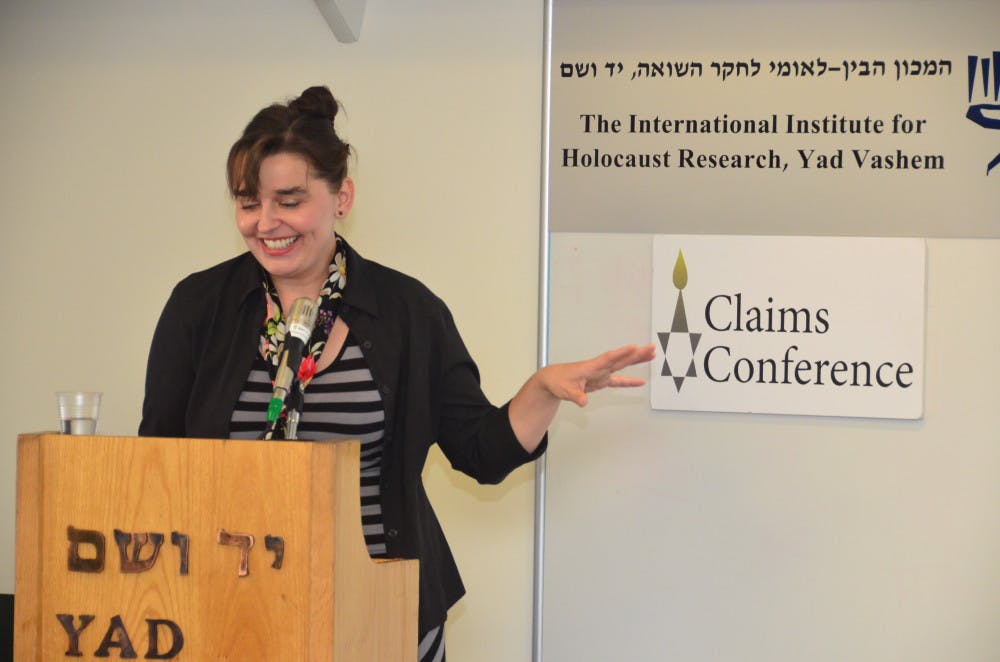Dr. Monika Rice, adjunct professor of Catholic Studies and Jewish-Christian Studies, published her first book “‘What! Still Alive?!’: Jewish Survivors in Poland and Israel Remember Homecoming.”
Rice earned her Ph.D. in Near Eastern and Judaic Studies at Brandeis University, and her M.A. and B.A. in cultural anthropology at the Adam Mickiewicz University in Poland.
[caption id="attachment_20753" align="aligncenter" width="838"] Rice is an adjunct professor of Catholic studies and Jewish-Christian Studies and an expert in the field of Jewish studies.
Rice is an adjunct professor of Catholic studies and Jewish-Christian Studies and an expert in the field of Jewish studies.
Photo via fellowships.claimscon.org[/caption]
An expert in the field of Jewish studies, Rice has received multiple fellowships. Her book displays her expertise and examines the testimonies of Holocaust survivors, which spotlights an issue not regularly discussed.
When asked how long the book took to complete, Rice said, “I’ve been doing research for a total of three years. Writing was about a year and a half.”
Rice used resources such as the Jewish Historical Institute in Warsaw and Yad Vashem, Israel’s official memorial to the victims of the Holocaust, in Jerusalem.
She compared the resources, which contain thousands of documents and testimonies from Jews living in Poland and Israel. The book’s intention is to generate an understanding of the Polish Jews population and their experiences with the Polish people post-Holocaust.
When asked what inspired her to write this book, Rice said, “It grew out of interest from interviews from those first encounters with the Poles right after the war and the survivors who stayed in Poland immediately after the war and those who later went to Israel…I wanted to see if their memories changed or if they were the same over time and how they changed, if they did.”
In addition, the book represents a personal journey for Rice.
“I am polish. The Holocaust is a big part of [my] country’s history,” she said.
The book reflects her personal interest in the treatment of the Polish Jew during their homecoming after the Holocaust.
Rice wants her readers to garner insight into the lives of the devastated Jewish population. She explained the term, “Cemetery Syndrome,” which is the feeling of returning to a devastated homeland without your dead relatives. After the Holocaust, “Cemetery Syndrome” was a reality for the Jewish people.
Rice collected experiences of Polish Jews and compared them to the reflection of Israeli Jews, which revealed a disparity in the description of those encounters. The comparison between the two accounts allowed Rice to develop an accurate picture of the past and gain a deeper understanding of their experience. According to Rice, the most valuable lesson from the book is simply understanding the material’s gravity.
Through the countless documents, Rice formed a deep connection with her personal history and international history.
Mia Page can be reached at mia.page@student.shu.edu.

Comments




